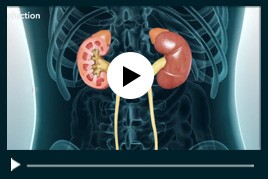Vasectomy
Vasectomy is a minor surgical procedure in which the vas deferens, a thin tube that stores and transports sperm is cut and then tied or sealed so that the sperm can no longer get into the semen. It is a permanent method of birth control in men. It prevents the release of sperm when a man ejaculates.
Vasectomy can be performed by various surgical techniques and they include:
- Conventional vasectomy: The testicles and scrotum are cleaned with an antiseptic solution. The procedure takes 20 to 30 minutes and may be done by a urologist or a general surgeon. Oral or intravenous (IV) anti-anxiety medications are given to relax and reduce anxiety. A vasectomy is usually done under local anaesthesia to numb the area. Two small punctures or holes are made on the scrotum and a part of vas deferens is removed through the opening. The cut ends of the vas deferens are then tied off with a synthetic thread or a clip. In some cases, electrocautery may be used to seal the ends with the heat. The skin is closed with absorbable sutures.
- No-scalpel technique: It is a technique that uses a small clamp rather than a scalpel to puncture the scrotum. The clamp is poked through the skin of the scrotum and then opened. This technique reduces bleeding, infection and pain and no stitches are needed.
- Vas clip implant procedure: This technique does not require cutting and suturing the vas deferens, but rather uses a clip known as vas clip to lock and close the vas deferens. This method is not as effective as other methods of sealing off the vas deferens.
Swelling and minor pain may be felt in the scrotum area for several days after vasectomy. Complications that might occur after a vasectomy include bleeding under the skin, infection at the site of incision, sperm leaking from a vas deferens and forming a small lump called sperm granuloma and inflammation of the tubes that carry sperms from the testicles. In rare circumstances, the vas deferens can regrow or recanalize, and if it occurs, it could cause pregnancy.
Instructions to follow after surgery may include:
- Avoid heavy lifting for a week
- Apply cold packs to the area
- Wearing snug underwear to support the scrotum
- Get plenty of rest
After vasectomy, it usually takes several months for all remaining sperm to ejaculate or reabsorb. Alternative methods of birth control must be used, until a semen sample test shows a zero sperm count.

 Menu
Menu




